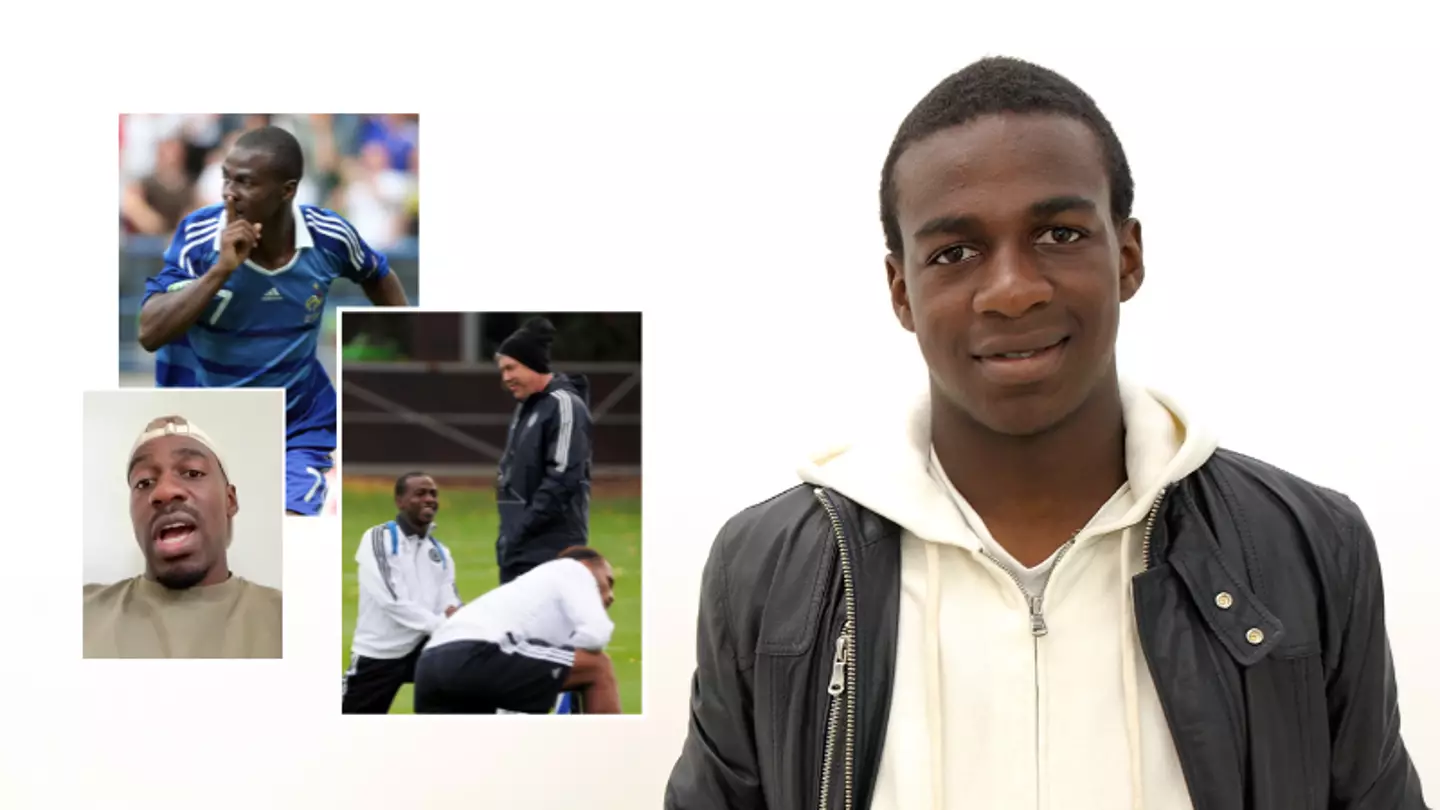
Gael Kakuta woke up on the morning of February 19, 2024, to what can only be described as an overwhelming number of missed calls and unread messages.
It is a moment that will resonate with many.
For a split second, a sinking feeling in the pit of your stomach takes over and panic starts to set in. You start asking questions; who, what and why? It can be an anxious experience, to say the least, but that initial concern disappeared when Kakuta started reading.
"All of my friends were sending me the same story," he tells SPORTbible. "Everyone knows Eden and what he's achieved in football, so for him to say that is really special."
Advert
From his home in northern France, the man who was once described as the most gifted player of his generation is speaking about former Chelsea teammate Eden Hazard and the comments he made on a recent podcast with John Obi Mikel.
The smile etched across Kakuta's face says it all.
Hazard played alongside some of the greats throughout his 16-year career, including Luka Modric, Kevin De Bruyne and Frank Lampard, to name just a few. But when the former Real Madrid winger was asked to name the most talented player he'd ever shared a pitch with, an answer that surprised many listeners followed.
“Kakuta by far," he said. "He is the number one. Talent. I mean, talent. Wow."
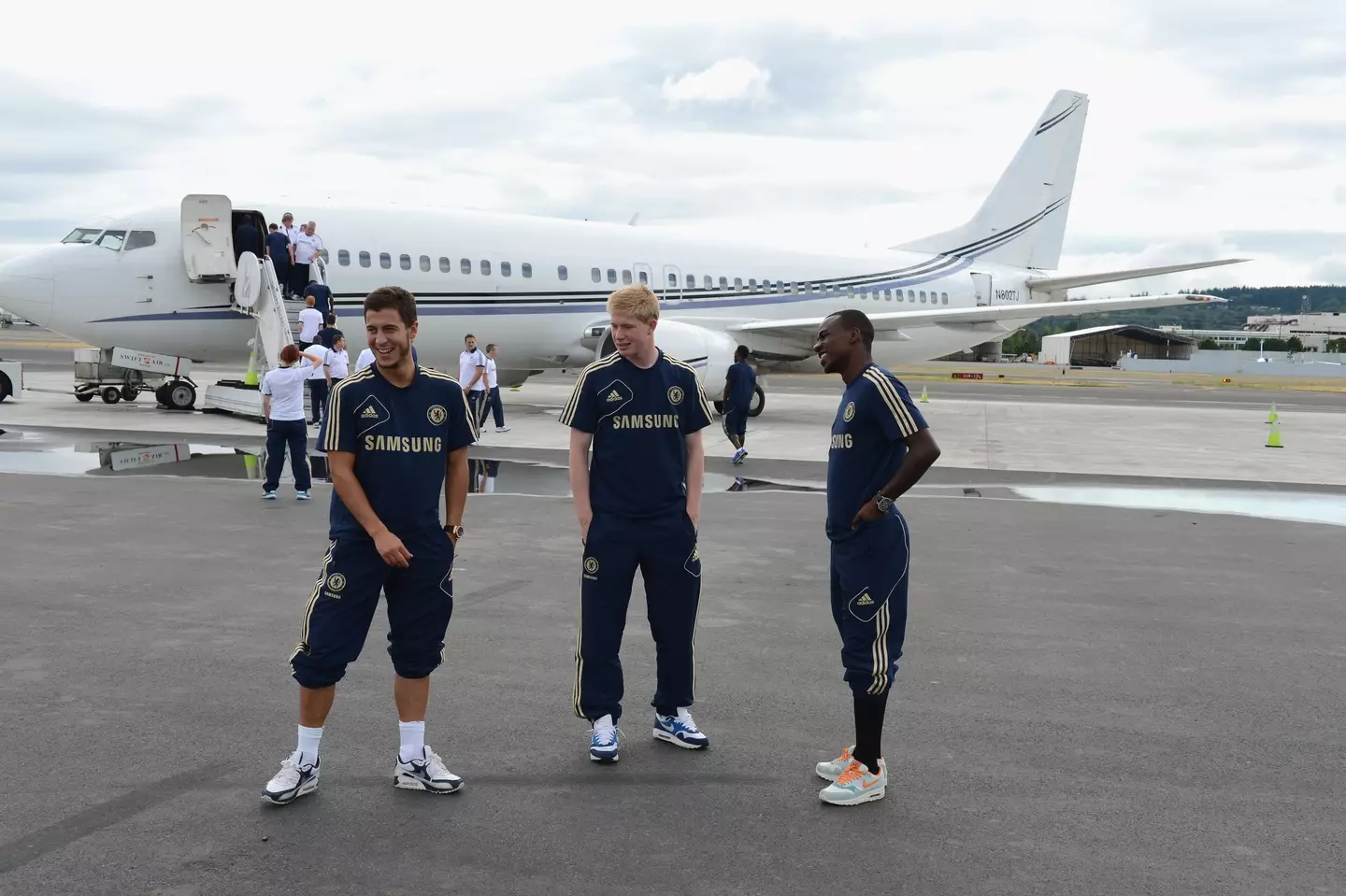
The funny thing is, those words shouldn't come as much of a surprise. Hazard is just one of many to speak highly of a phenomenon that made headlines when he signed for the Blues at 16.
Michael Ballack once featured in a reserve game alongside Kakuta and naturally, every reporter made their way over to the German midfielder at full-time. Before a question was asked, he started and ended the interview by saying: "Go see the French lad; he is the star."
Carlo Ancelotti, one of football’s most successful managers, described a teenage Kakuta as “the future of Chelsea” after a 2-2 draw against Apoel Nicosia.
In fact, the Italian said he'd never seen a player with so much talent at that age, adding: "He can be a big player for Chelsea with his quality, and his character is very good too."
So, what happened? It's a fair question. For over a decade the subject has been a tough one to clarify because Kakuta has never been a fan of interviews, instead preferring to keep a low profile. But as he approaches his 33rd birthday, the former golden boy of French football is ready to open up and tell his side of the story.
“I think I’d still be at Chelsea today if things turned out like they were supposed to," Kakuta says, nine years after leaving Stamford Bridge. "In fact, I'd have finished my career there."
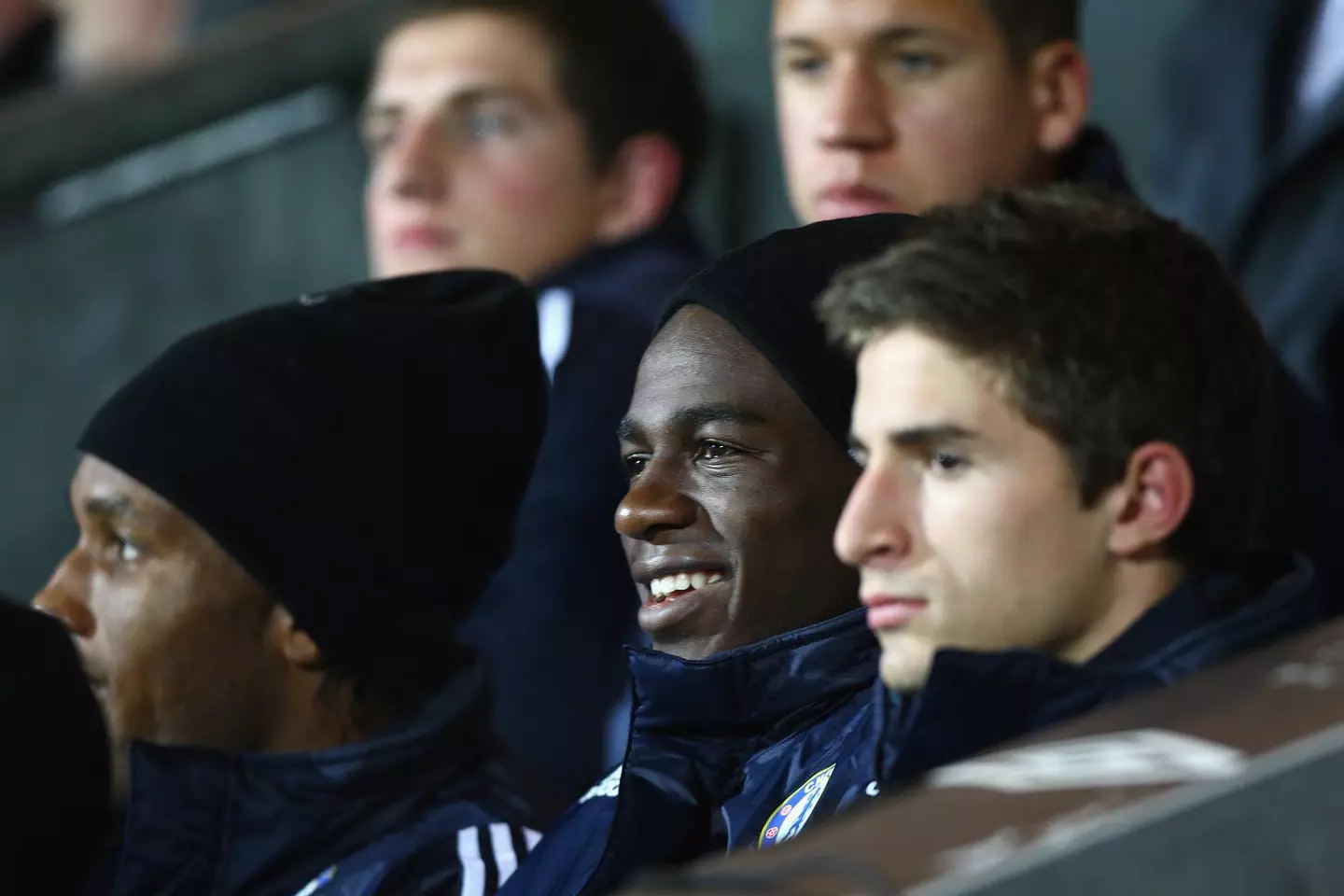
Guy Hillion, the man who discovered Gael Kakuta when he was playing for French side Lens, made a telling comment in 2014.
"I've already said it and I'll repeat it: he was the most talented of his generation," Hillion told L'Equipe. "He could be exceptional. But talent is not enough."
Kakuta can't help but smile as the above statement is read out. “It was the truth," he says.
At the time of Hillion's comments, Kakuta was back at Chelsea after returning from the fourth loan of his career – a 16-month spell at Dutch side Vitesse Arnhem. Three weeks later he packed his bags again; this time to Italy, where he would make two first-team appearances for Lazio before returning again.
The youngest player to represent Chelsea in the Champions League was stuck in a merry-go-round loan system that would often chew up and spit out players, however talented they were.
But a few years earlier, everything was different.
After being heralded as one of the top young talents in world football, a host of top European clubs tried to sign the 16-year-old from French side Lens.
Some thought he was too young to make the move, including former Lens manager and scout Joachim Marx, who told Kakuta that he had time to mature at his own pace. Eden Hazard agrees with Marx. "He was 16 when he left France for Chelsea, you know? And that step is huge."
Kakuta disagrees. A year after joining, he ended the season as top scorer and was voted the scholar of the year by Chelsea's academy staff. A call-up to train with the first-team followed.
Carlo Ancelotti soon made a statement by naming Kakuta in his Champions League squad. Life was moving at an alarming speed.
"I remember after my first training session with the first-team, Ancelotti looked at me and just winked," Kakuta says. “I could tell my teammates were impressed by their facial expressions.
"At the time, I was thinking, 'Okay, now this is serious.' Before that, I was just enjoying it. It's not that I wasn't taking it seriously but people were putting too much pressure on the guys. There were lots of talented players who would come into first-team training and get very nervous. I wasn't like that at all."
Little did he know that an incoming scandal would leave a scar on his career for years to come.
On the afternoon of September 3, 2009, Kakuta was banned for four months and given a fine of more than £670,000 by FIFA for allegedly breaking his contract with former club Lens. Chelsea were also handed a two-window transfer ban.
His name was plastered across the back page of every newspaper, even before a ball was kicked. To his credit, he remained calm throughout that tough period.
“I was in my right to move," he says, 15 years on. "I knew the club would work it out and the lawyers would do their job. I wasn't worried at all. Everyone was saying, ‘He's got one million to pay’ which I didn't. After two months everything was sorted."
Chelsea appealed against their punishment, claiming that Kakuta did not have a valid contract with Lens. The sanctions were eventually lifted by the Court of Arbitration for Sport, meaning one of world football's biggest young talents was once again free to let his feet do the talking.
With the ban suspended pending an appeal, Kakuta was handed his Premier League debut in a 4-0 win over Wolves. Ask any Chelsea fan about that day and they'll recall the anticipation around Stamford Bridge as a smiling Nicolas Anelka made way for the much-talked-about teenager.
He remembers it well. “Everyone was curious because Chelsea were banned because of me," Kakuta says. "Everyone in the crowd was like, 'Oh, it's him. It's him.' I was thinking, 'Yeah, it's me. Let me prove myself and show what I’m made of.’”
It remains his favourite memory in a Chelsea shirt. Even now, he can recall the scenes before kick-off.
"I remember going for lunch with everyone but I was really quiet. Everyone was going to get their plates for food but I didn't know where to go. I didn't even want to eat. I was so nervous. But when we got to the pitch, I was very happy. I felt free after everything.”
There was an expectation that Kakuta would kick on after making his Premier League and Champions League debut in the space of two weeks, especially as he continued to impress in first-team training. But there was a big problem; competition for places.
With the amount of talent at their disposal, you could argue Chelsea had too many options. Academy products Jeffrey Bruma and Patrick van Aanholt, who were also promoted to the first-team, were left yearning for minutes during a crucial stage in their development.
"We weren't playing reserve team football at the time," Kakuta recalls. "The first-team were playing every three days but we were barely involved. Those playing at youth level kept their confidence and rhythm. It was difficult.”
A lack of competitive minutes was evident when games did roll around. "I was unfit," the Frenchman says. "We played in a cup game against Newcastle and I was blowing after about three minutes. I was thinking, 'How is that possible?' Then I got kicked on my back and I couldn't move.
"After that I needed to put more work into my fitness levels but realistically it was too late. At that level, it's too late."
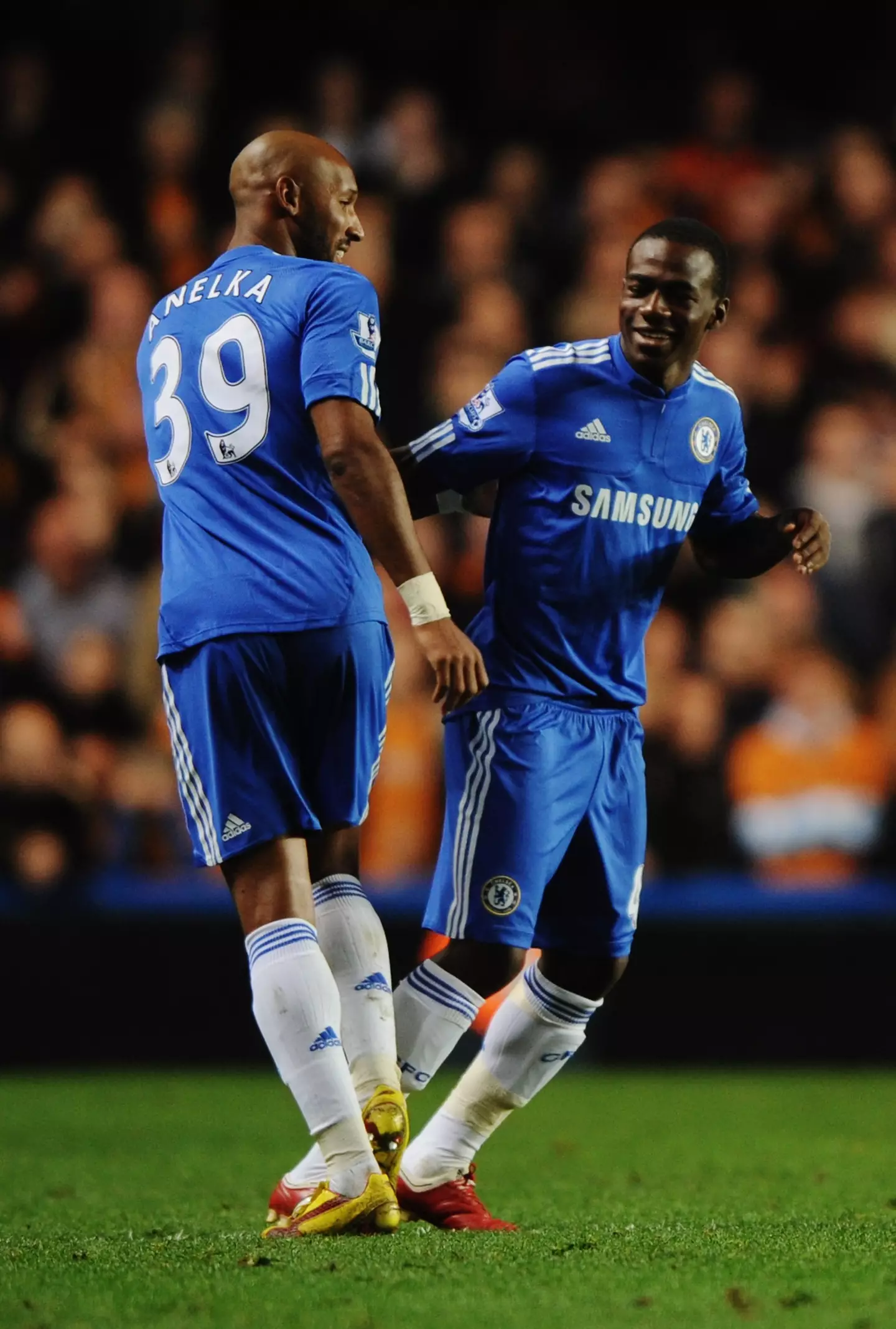
Kakuta pushed through those fitness concerns in the summer of 2010. In fact, he was awarded the Golden Player award for his performances with France at the under-19 European Championship, following in the footsteps of Fernando Torres and Alberto Aquilani.
It was a much-needed momentum shift for the gifted French forward and everyone was starting to take notice, including Ancelotti. Even when injured, he was desperate to prove a point – so much so that it stopped him from ever reaching his full potential.
When asked about the biggest thing that stopped him from making it at Chelsea, Kakuta mentions that fateful period in 2010.
“I had an injury that I didn’t treat properly," he says. “You think you’re invincible when you’re young. I remember after I won the Euros with France, I came back to Chelsea. We played in a pre-season game against Hamburg. I got injured after the Euro final but I knew this was my moment to shine, because I finished as the tournament’s best player.
"To get that chance as a young player at Chelsea, especially at that time when the big names were there, was rare but I was injured.
“I trained and played injured. And I’m going to tell you something funny now. I still have the pain today. I tore a tendon muscle between the glute and the hamstring. I still struggle with my hamstring because it turned into a calcification, which scarred the tissue. You have to treat those things. It was only until afterwards that I found out."
He continues: "The person who examined me asked, 'Did you get injured one day?' and I said yes, it was during that time. When you're young, you recover quick. And you just think, 'Oh, I'm fine' but it hurt my career.
"It's my fault," he admits. "It would have only taken a few weeks to recover but I wanted to play so much that I carried on in pain. You're naive. And when you play and say you're fully fit, people treat you like a fit player. They judge you as one."
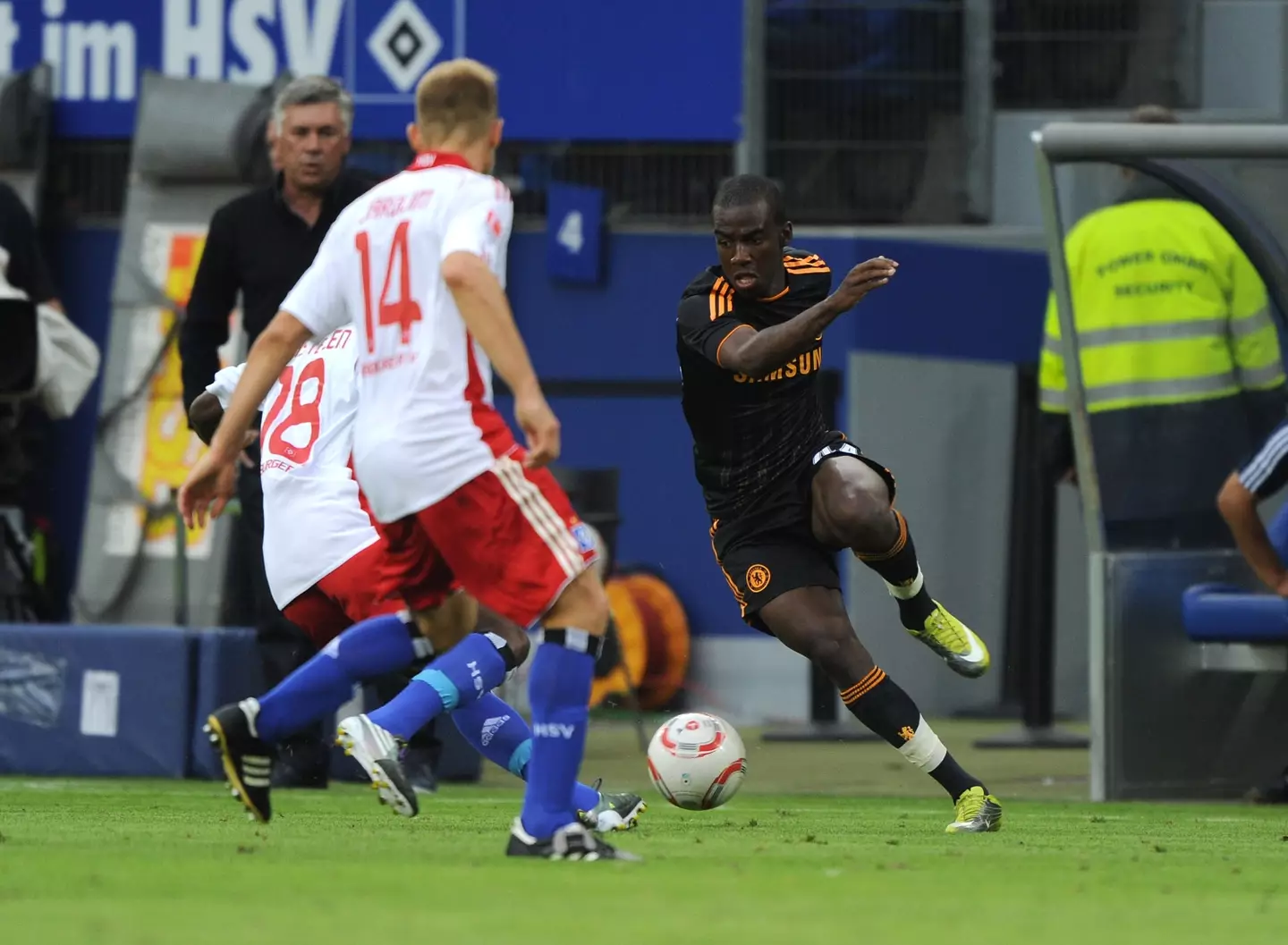
Gael Kakuta is shaking his head from side to side. "I was very naive to sign that four-year contract," he says. "Instead of renewing, I should have left for another team that would have treated me like a first-team player rather than a youngster who came to the first team.”
At the end of December 2010, Chelsea put an end to speculation over the teenager’s future with the announcement of a four-year deal.
It was a decision that played a significant part in his career. "There were lots of teams that wanted to sign me after the under-19 Euros," Kakuta remembers. “AC Milan were interested, as well as other big clubs. It was the right time to move on.
"When you arrive young at a big team like this, they will always treat you like a young player. Whatever happens. You can turn 22 or 23 and they’d still think that. Now it's a different time but back in the day, another player would arrive after you and be ahead in the pecking order. They would presume you were fine and happy.”
Shortly after committing his long-term future to the Blues, a six-month loan move to Fulham was agreed. He went on to make two starts and five sub appearances for Mark Hughes' side, scoring once.
It didn't go as planned and he takes full responsibility for that fact.
“The first loan at Fulham was 100 per cent my fault," he admits. "At certain moments, I forgot that I was a football player. I was just enjoying life off the pitch. It was me and with my best friend in London. I'd go out two or three times a week, which was a big mistake.
"I would also go back and forth to France because it was just an hour-and-a-half train to Lille – the city where I'm from. I wasn't really focused on football. I regret that, although it helped me grow and learn.”
Gakuta was loaned out to six different clubs over a six-year period at Chelsea. Like so many others, he tried to make an impact on his return to Cobham but it was easier said than done – especially when the club were so active in the transfer market.
“One day I walked into the physio room and I bumped into Daniel Sturridge. I'm like, 'Oh, I'm already struggling and Danny turns up!" Kakuta laughs, throwing his arms in the air. "Other players are coming in as well and I'm thinking, 'Why did I renew my contract?'
"You come back from the loan spells and there are 35 players in training. And then they add a few more, including someone in your position who is worth £40 million. You end up at the end of their list, and then you have to find another loan to prove yourself."
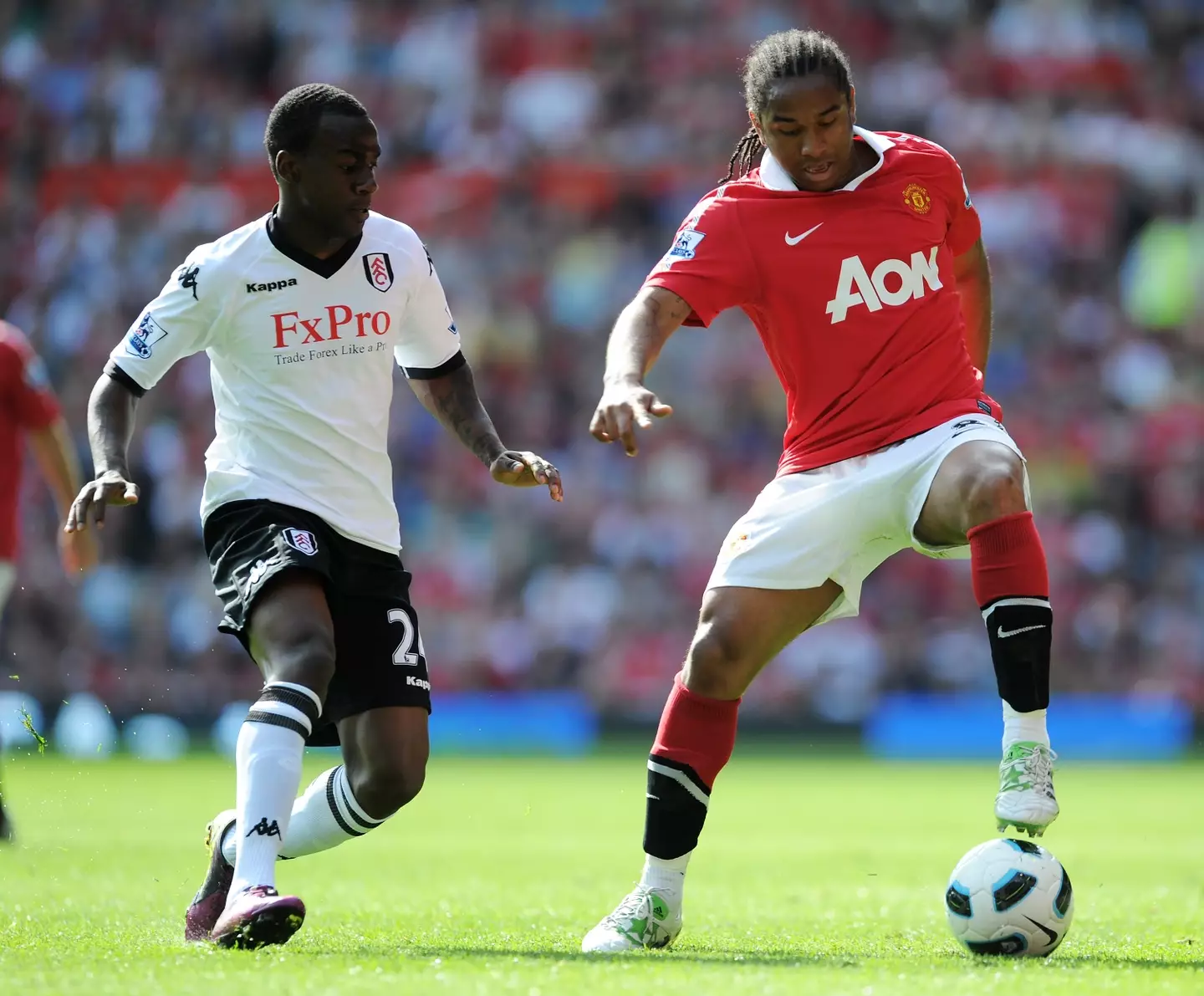
A frustrating four-month spell at struggling Bolton followed. He managed to score on his debut in a League Cup game against Aston Villa but was left perplexed after being benched for the next month.
"I was staying in a hotel and this time I was fully focused on football," he recalls. "So I went to the coach, Owen Coyle, and asked him what was going on. He said, 'You are trying to play too much football'. I replied, 'Obviously, I'm coming on loan from Chelsea, what do you expect from me?' And he said, 'Oh, we play more direct here.’ I was thinking, why did you bring me here in the first place!"
Dijon, Vitesse Arnhem and Lazio came and went without much fanfare but everything changed at Spanish side Rayo Vallecano.
He played a pivotal role in their survival and a number of clubs expressed an interest, including Sevilla. The plan was to make an impact in La Liga and return to Chelsea, where he would play alongside Eden Hazard – the man he battled on so many occasions during his youth days at Lens.
"My first year in Spain... ah I killed it there," he grins. "I was thinking, 'Okay, maybe Chelsea will give me another chance.' Sevilla wanted to sign me and so did Barcelona, who made contact. Ultimately the best option was to keep on playing regular minutes and that's why I moved to Seville.
"I remember thinking, 'I’m going to prove myself now.’ That first year in Spain went so well and all the defenders were scared of me. The plan in my head was to play well with Sevilla for two years and then move back to Chelsea. But it turned into another nightmare.”
After turning down big-money offers from teams in France and Italy, Kakuta left Chelsea to join Sevilla in a £2.5 million deal – another decision he lived to regret.
"I didn't do things properly before my time in Spain and, as they say, it came back to bite me," he admits. "I tried to fix that. From the outside people would assume that I wasn’t working but I was doing so much off the pitch. I worked so hard to end up playing at left-back in training. That's why I moved to China.”
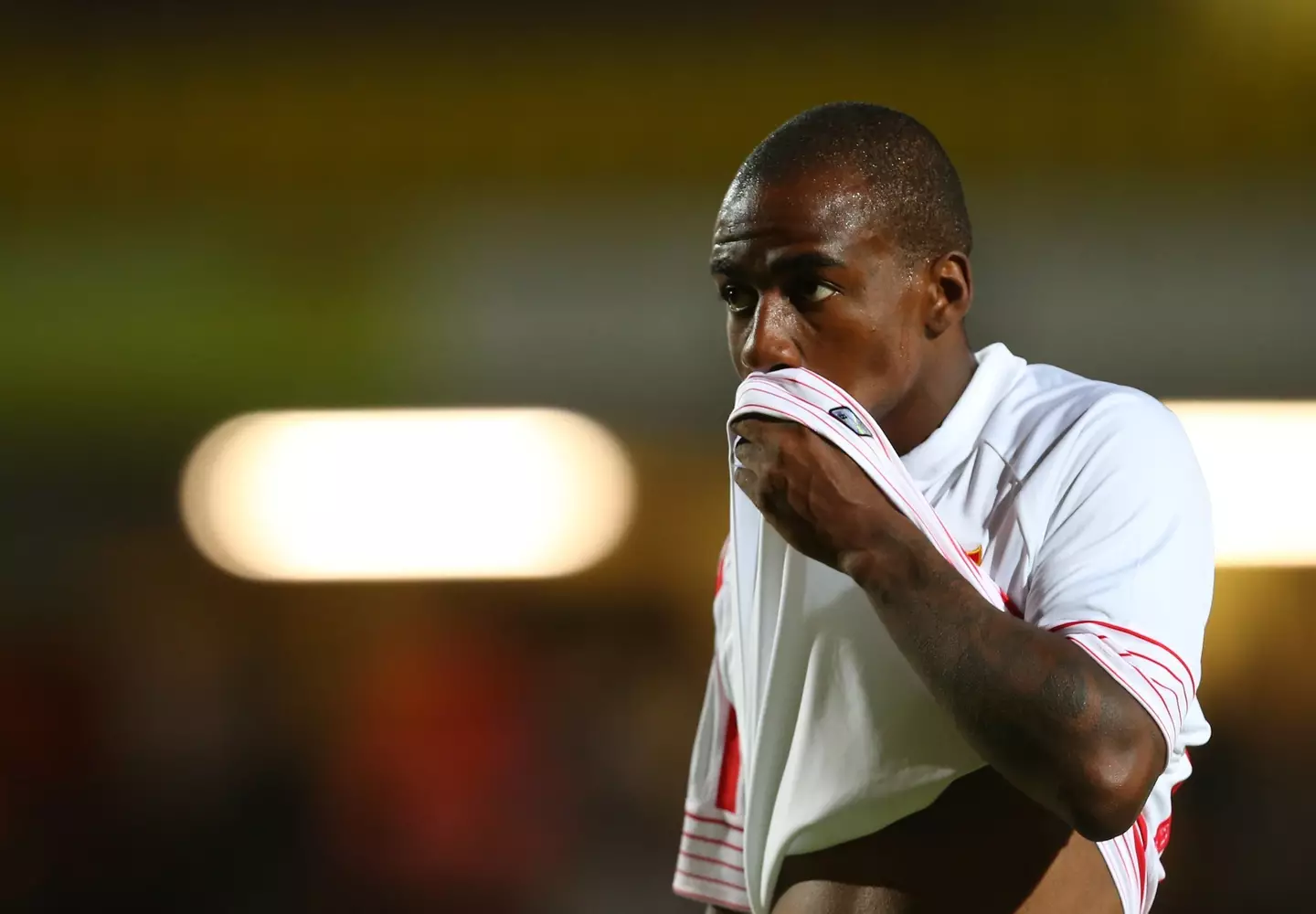
Not doing things properly in the early years of his career is a recurring theme throughout our chat. Kakuta is open and honest about why it didn't work out in West London.
“When I was at Chelsea, and even before that, I should have had the mentality of wanting to smash it all the time," he says.
"I was young and suddenly I had everything. I was living like a king. You just think everything is normal, like training with the best players in the world. You think it's cool but then you start competing with them. You think they are your friends but in reality, they're not.
“From my performances in training I think I could have had more minutes, but training and games are so different. I wasn't fit enough to reach my maximum level. I realised that when I stopped playing regularly. In training you can get away with not tracking back. It's different in games."
Kakuta continues: “At the time, I didn't understand how big the chance was and how much work I had to put in. I was just thinking like I was back in the youth system. I was taking it easy in training and the in-game intensity is different. I think if I was fit, and I understood my body more, I would have been unstoppable.”
In a curious turn, the Frenchman goes on to mention a member of staff at Chelsea who "wasn't happy" with him being at the club.
He doesn't mention names [it wasn't Ancelotti] but says that was one of the biggest factors that stopped him from making it at Stamford Bridge.
"One of his friends was in my position," Kakuta says. "My contract was ending and it was between me and that player. That person picked up on all of my problems. I started to understand that afterwards. When you're young, you're a little bit naive."
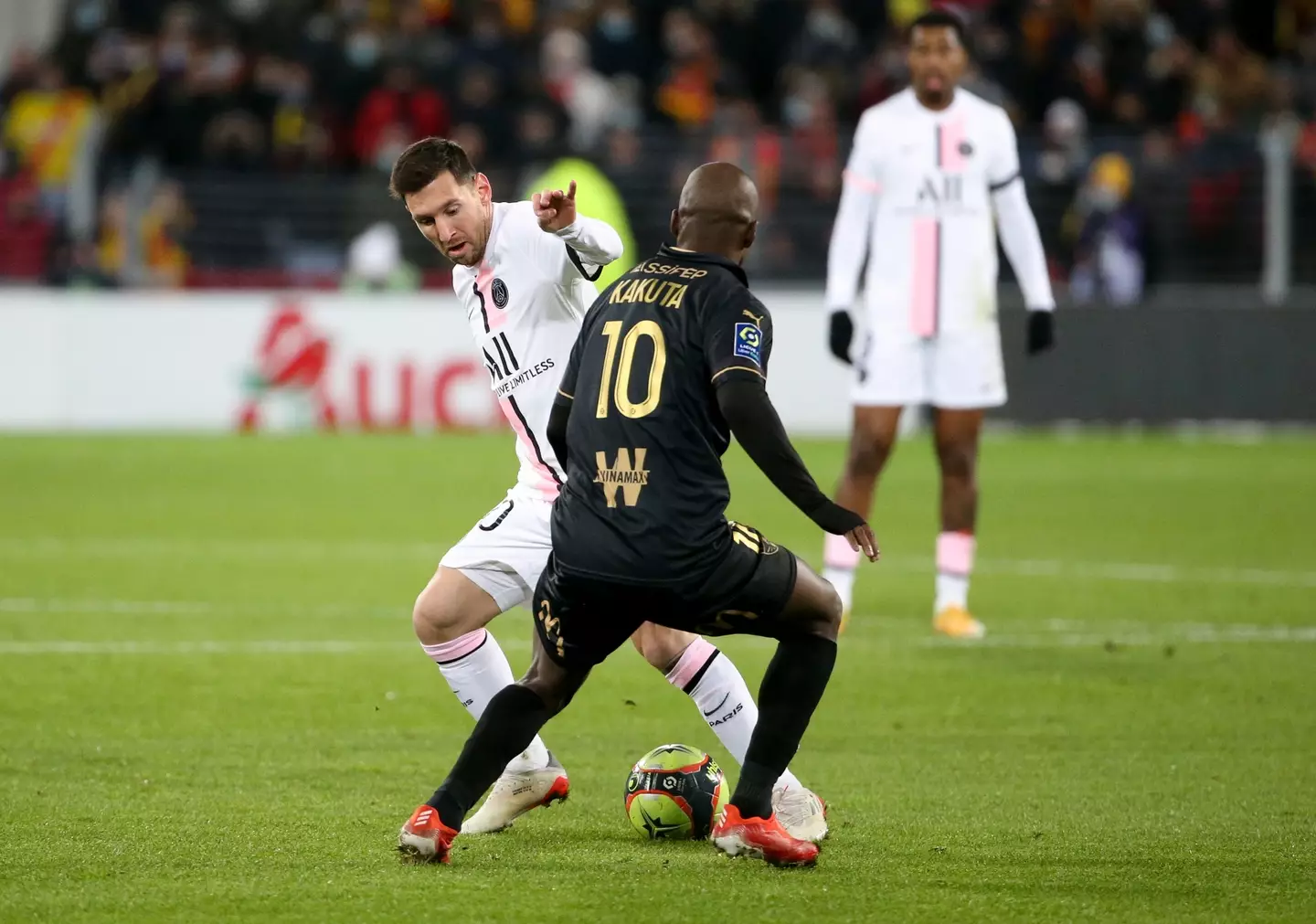
The conversation has turned to the present day as we wrap up our interview. Today, Kakuta is enjoying life at the Stade de la Licorne – home of French second-division side Amiens. He has made more appearances for the Ligue 2 club than any other in his career so far.
“Sometimes you have to question yourself and accept some things," he concludes.
"For example, I went to Dijon - a team that was coming up from the second division. Everyone at Dijon, including the opposition, were saying, 'Why are you here?' but in my head, I had to go down to a lower level and show that I was better than all of those players to then go higher again. You can't think, 'No. I need to go to this certain club’ or you’ll just fail.”
The decision to join Amiens wasn't entirely football-related. Kakuta is familiar with the club and the sporting director after a previous two-year spell but the most important aspect was being close to his mother, who fell ill in 2021.
"I had to make a decision," he says. "I had offers from Saudi Arabia, Qatar, and even in the Championship. I could have come back to England but I wanted to stay close to my mum. It was the best option for me. It was part of the journey to make her happy and proud. She sadly passed away last month.”
Having experienced so many highs and lows in a career that promised so much, Kakuta accepts the past and what he could have done better.
In his own words, he should have focused on taking his job more seriously, especially during those early days. Hard work and recovery is the biggest piece of advice he would give to any young player out there. "You must invest more in your body," he says. "Give yourself a chance to make it.”
Something that has remained constant in his life, however, is his admiration for Chelsea. And it feels right to end on a positive note.
"I grew into a man in England," Kakuta smiles. "When I turned 16, I moved to the UK and discovered everything. They gave me that chance and that’s something I’ll never forget. I still watch all of their games, even if my friends are laughing at me because we’re not the same Chelsea anymore.
"But I'm still behind them. I believe in the club. I haven't had time to attend a game at Stamford Bridge but I will soon. They have a big place in my heart.”
Topics: Bolton Wanderers, Chelsea, Eden Hazard, France, Fulham, Lazio, Ligue 1, Premier League, Spotlight